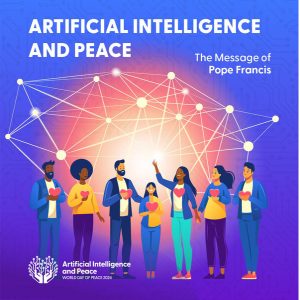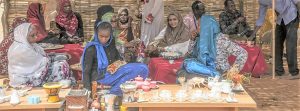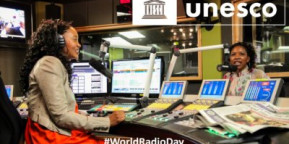
The ozone layer, a fragile shield of gas, protects the Earth from the harmful portion of the rays of the sun, thus helping preserve life on the planet.
The phaseout of controlled uses of ozone depleting substances and the related reductions have not only helped protect the ozone layer for this and future generations, but have also contributed significantly to global efforts to address climate change; furthermore, it has protected human health and ecosystems by limiting the harmful ultraviolet radiation from reaching the Earth.
Montreal Protocol: Advancing Climate Action
On this World Ozone Day, we not only celebrate the achievements to date but also look to the future for deeper and faster action under the Montreal Protocol. Deeper and faster for the ozone layer but above all, for people, for climate and for the planet. The UNEP Ozone Secretariat has prepared a social media package in six languages, including cards, videos, and suggested messages, available here.
Background
A number of commonly used chemicals have been found to be extremely damaging to the ozone layer. Halocarbons are chemicals in which one or more carbon atoms are linked to one or more halogen atoms (fluorine, chlorine, bromine or iodine). Halocarbons containing bromine usually have much higher ozone-depleting potential (ODP) than those containing chlorine. The man-made chemicals that have provided most of the chlorine and bromine for ozone depletion are methyl bromide, methyl chloroform, carbon tetrachloride and families of chemicals known as halons, chlorofluorocarbons (CFCs) and hydrochlorofluorocarbons (HCFCs).
Vienna Convention for the Protection of the Ozone Layer
The scientific confirmation of the depletion of the ozone layer prompted the international community to establish a mechanism for cooperation to take action to protect the ozone layer. This was formalized in the Vienna Convention for the Protection of the Ozone Layer, which was adopted and signed by 28 countries, on 22 March 1985. In September 1987, this led to the drafting of The Montreal Protocol on Substances that Deplete the Ozone Layer.
Montreal Protocol
The principal aim of the Montreal Protocol is to protect the ozone layer by taking measures to control total global production and consumption of substances that deplete it, with the ultimate objective of their elimination on the basis of developments in scientific knowledge and technological information.
In 1994, the United Nations General Assembly proclaimed 16 September the International Day for the Preservation of the Ozone Layer, commemorating the date of the signing, in 1987, of the Montreal Protocol on Substances that Deplete the Ozone Layer (resolution 49/114).
Implementation of the Montreal Protocol
Implementation of the Montreal Protocol progressed well in developed and developing countries. All phase-out schedules were adhered to in most cases, some even ahead of schedule. Attention focused initially on chemicals with higher ozone-depletion potentials including CFCs and halons. The phase-out schedule for HCFCs was more relaxed due to their lower ozone-depletion potentials and because they have also been used as transitional substitutes for CFCs.
The HCFC phase-out schedule was introduced in 1992 for developed and developing countries, the latter with a freeze in 2015, and final phase-out by 2030 in developed countries and 2040 in developing countries. In 2007, Parties to the Montreal Protocol decided to accelerate the HCFC phase-out schedule for both developed and developing countries.
« On this World Ozone Day, let’s commit to making peace with our planet. Let’s commit to build on the success of the Montreal Protocol to show what international cooperation at its best can achieve ». Antonio Gutteres

 This year’s World Water Day, on 22 March 2024, will take place under the theme ‘Leveraging Water for Peace’.
This year’s World Water Day, on 22 March 2024, will take place under the theme ‘Leveraging Water for Peace’.
 It is then that the gospel text of Mark comes to our rescue:
It is then that the gospel text of Mark comes to our rescue:  T
T


 The theme for the 12th edition of the World Radio Day, to be celebrated on 13 February 2023, is «
The theme for the 12th edition of the World Radio Day, to be celebrated on 13 February 2023, is «  This is the case, this Sunday, with the words of the prophet Isaiah telling us (Isaiah 35:1-6,10):
This is the case, this Sunday, with the words of the prophet Isaiah telling us (Isaiah 35:1-6,10):